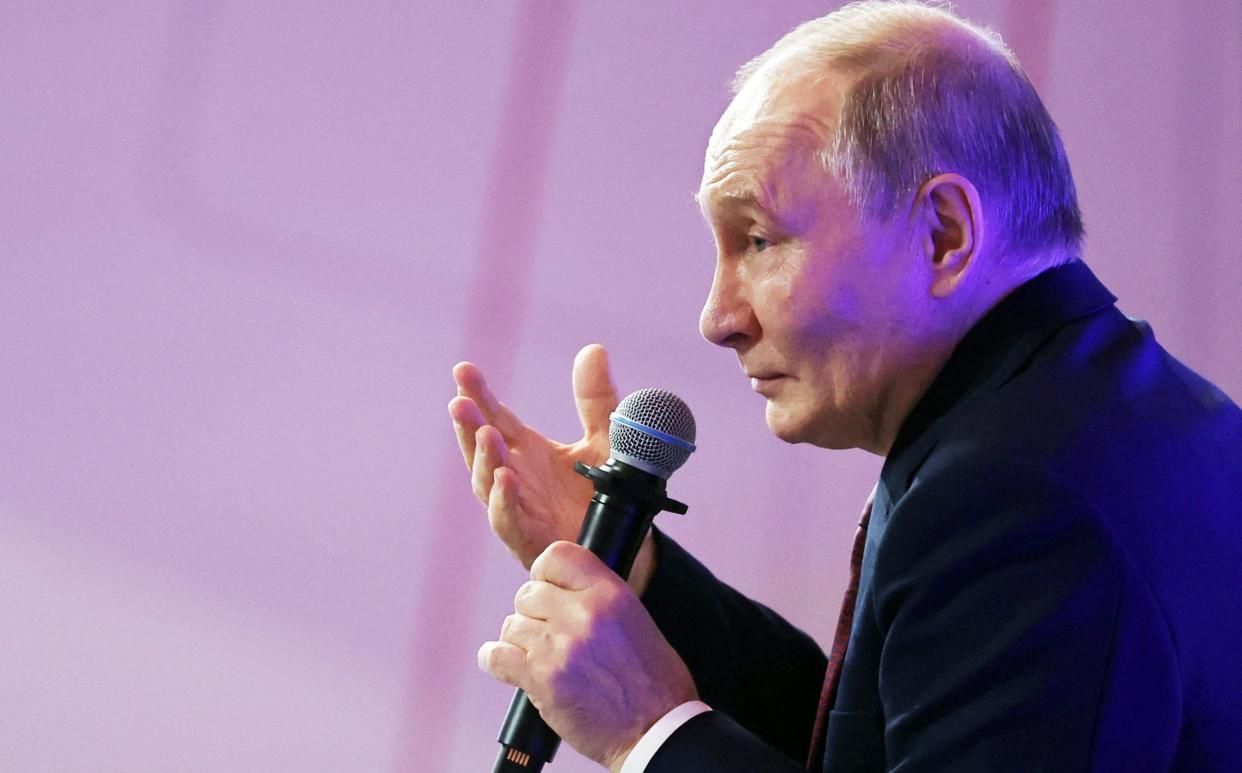Britain’s sanctions regime labelled ‘ineffective and politicised’ in top KC’s report

Britain’s sanctions regime is ineffective and has become “highly politicised”, a legal expert has warned.
Dean Armstrong KC, a specialist on international sanctions, argues the “broad” sanctions introduced following Russia’s invasion of Ukraine in 2022 set a “dangerous precedent” which has been used against Israel.
Mr Armstrong conducted a legal examination of the sanctions regime in conjunction with the International Legal Forum (ILF) – an Israel-based coalition of lawyers “committed to combating terror and promoting the rule of law”.
In the introduction to the report, Arsen Ostrovsky, the chief executive of the ILF, said he decided to engage Mr Armstrong after Lord Cameron’s decision to sanction Israeli nationals described as “extremist settlers”.
The top lawyer, whose findings are published exclusively in The Telegraph, concluded that sanctions have been levied without due process and fail to constrain the intended target. Instead, he says, they have had a “dire effect” on “innocent” British nationals and their families.
The Sanctions and Anti-Money Laundering Act 2018 (SAMLA) forms the bedrock of the UK’s sanctions regime. When an individual is sanctioned, key freedoms are restricted such as their ability to receive money, travel and own property or assets.
UK measures ‘largely arbitrary’
But UK sanctions, Mr Armstrong wrote, are “largely arbitrary”. He went on: “The standard of proof required is well below the criminal standard which is concerning given the effect of the penal sanctions imposed.
“Thus, UK sanctions effectively act as a form of quasi-criminal liability without due process.”
Mr Armstrong, who has worked on several civil and criminal sanctions cases, also highlighted the difficulty sanctioned individuals have in appealing.
He wrote: “Once listed, the target cannot challenge the listing in a court of justice without first having applied for a ministerial review. Hence, the same institution of state, the government, which imposed the sanction is the one reviewing its merits when challenged.
“In the vernacular, it is judge and jury.”
As an example of this lack of due process, Mr Armstrong cited the Government’s decision in February this year to impose asset freezes and travel bans against Israeli settlers accused of committing human rights abuses against Palestinians.
He wrote: “The targeted Israelis face quasi-criminal consequences without a court trial, and the only justification for the Government’s nebulous decision is a cursory public statement.”
On May 3, the Foreign Secretary announced further sanctions on X aimed at Israelis who he described as “extremist settlers …undermining security and stability and threatening prospects for peace”.
This example, according to Mr Armstrong, demonstrates “the unlawful, politically motivated and arbitrary nature of the UK sanctions regime.”
Russia increased trade with China and India
Mr Armstrong also stressed that the sanctions themselves are ineffective in achieving their foreign policy objectives.
In the case of sanctions against Russia following the country’s invasion of Ukraine, Mr Armstrong argues, they have had the “unintended effect” of increasing Russia’s trade with China, India and other countries.
He stated: “The UK designs measures to hurt Russia, but the latter eventually adapts, forcing the UK to re-evaluate its measures. The only ones who are constrained and coerced are the innocent people of the target state.”
Mr Ostrovsky closed his introduction by warning: “Depending on the identity of the government in the UK, Israel could quickly find itself facing a situation under which the sanctions regime applied to Russia is now applied to Israel.
“UK Jewish community or business leaders supportive of Israel could find themselves under sanctions by specific politicians making arbitrary decisions without due process.
“The same would apply to elected officials in Israel.”
Sanctions ‘a vital tool’
When asked for a response, the Foreign Office referred The Telegraph to comments made by the Foreign Secretary as part of his sanctions strategy: “For Britain and our partners, sanctions are a vital tool for pursuing our interests and protecting our values.
“They send a signal. But they also have a tangible impact. By targeting particular individuals or resources, they impose costs on those we target, thereby changing their calculus. Allied with adept diplomacy, they can constrain an adversary or deter them from an unwise course of action.”

 Yahoo News
Yahoo News 
